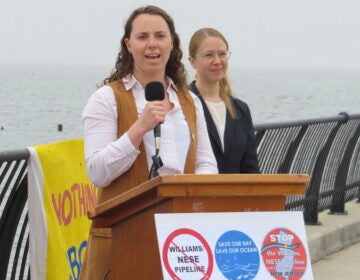Science At Work
Listen 47:13
It’s Labor Day, which means we’re celebrating the hard-working people who keep the engines of productivity humming. On this episode, we’ll explore how science and technology are changing work and workplaces, and what we are learning about the pitfalls of different work environments. A look at how the American tradition of tying benefits to jobs has impacted our health care. We’ll meet a woman who used science to prove that ladies should be part of the workforce. Plus, the psychology of snarky office emails, and the case for mandatory vacation days.
Also heard on this week’s episode:
- Reporter Dan Gorenstein offers a history lesson on how health coverage became tied to our jobs — along with how it’s affected our wallets and the overall economy.
- WESA’s Margaret J. Krauss brings us the story of a night-shift emergency doctor who handles lots of tough stuff and still loves his job.
- History Professor Carla Bittel explains how Victorian-era physician Mary Putnam Jacobi upended the idea that women can work during their periods — and how that paved the way for women to become doctors and scientists.
- Host Maiken Scott talks with Nikil Saval, author of Cubed: A Secret History of the Workplace, about the rise of cubicles. Next, psychiatrist Jody Foster chimes in on how working together in tight spaces can create workplace tensions.
- Psychologist Dan Gottlieb says “end-of-summer sadness” is a real thing. But there’s good news: you can also find joy while wearing a fall sweater.
Segments from this episode
WHYY is your source for fact-based, in-depth journalism and information. As a nonprofit organization, we rely on financial support from readers like you. Please give today.






